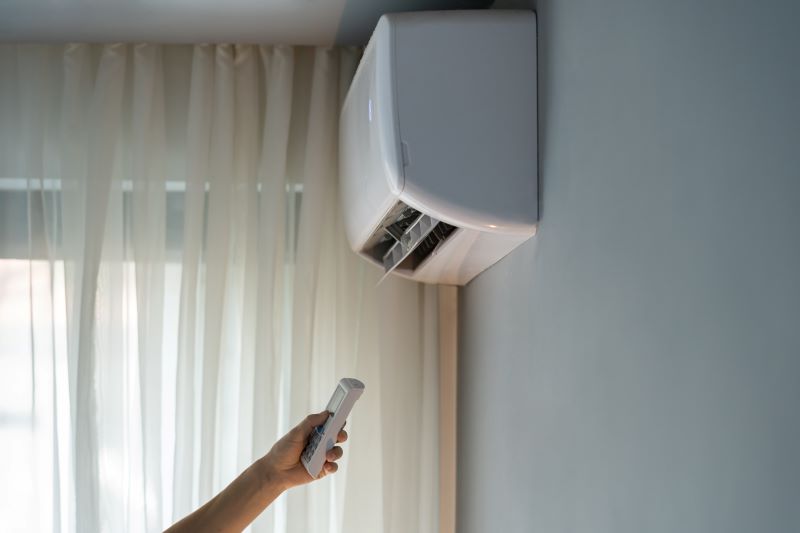Click here to get this post in PDF
In today’s world, businesses face increasing pressure to adopt eco-friendly practices and demonstrate their commitment to sustainability. One significant area where companies can make a meaningful impact is through their heating, ventilation, and air conditioning (HVAC) systems. Implementing eco-friendly AC solutions not only enhances energy efficiency but also boosts a business’s green credentials. This blog explores how smart repairs and sustainable AC practices can improve your company’s environmental footprint and overall reputation.
Understanding Eco-Friendly AC Solutions
According to www.airmasterspro.com, eco-friendly AC solutions refer to HVAC systems and practices designed to minimize environmental impact. These solutions often involve energy-efficient equipment, sustainable refrigerants, and smart technologies that reduce energy consumption. As climate change becomes a more pressing issue, businesses are increasingly recognizing the importance of integrating sustainable practices into their operations.
Current trends in eco-friendly HVAC technology include the adoption of Energy Star-rated units, known for their efficiency, and smart thermostats that allow for precise temperature control. According to the U.S. Department of Energy, upgrading to energy-efficient systems can reduce energy consumption by 20-50%, resulting in significant cost savings and reduced greenhouse gas emissions.
Benefits of Eco-Friendly AC Solutions
The benefits of eco-friendly AC solutions extend beyond environmental considerations. First and foremost, businesses that adopt these solutions often experience substantial cost savings. Energy-efficient systems consume less electricity, leading to lower utility bills. This financial relief can be particularly crucial for small to medium-sized enterprises operating on tight budgets.
Moreover, the environmental impact of transitioning to eco-friendly HVAC systems is profound. By reducing energy consumption, businesses contribute to a decrease in fossil fuel usage, which is a major driver of climate change. Studies show that buildings account for nearly 40% of global energy-related carbon dioxide emissions. By improving energy efficiency, businesses can significantly lower their carbon footprint while enhancing their brand image as environmentally conscious entities.
Additionally, eco-friendly AC solutions often improve indoor air quality, benefiting both employees and customers. Systems designed with green technologies frequently incorporate advanced air filtration methods that eliminate pollutants, allergens, and harmful particles. Improved air quality can lead to better employee health, reduced absenteeism, and higher productivity levels. Furthermore, businesses that prioritize sustainability may attract environmentally conscious consumers, giving them a competitive edge in a market increasingly driven by eco-awareness.
Smart Repairs: What They Entail
Smart repairs involve proactive maintenance and strategic upgrades that enhance the efficiency of existing HVAC systems. Instead of waiting for systems to fail, businesses can adopt a preventive approach that identifies and addresses issues before they escalate. This not only prolongs the life of the AC unit but also optimizes its performance.
Examples of smart repairs include regularly scheduled maintenance, such as cleaning filters and checking refrigerant levels, as well as retrofitting older systems with energy-efficient components. By investing in smart repairs, businesses can achieve a higher level of comfort for their employees and customers while reducing energy consumption. According to the American Society of Heating, Refrigerating and Air-Conditioning Engineers (ASHRAE), regular maintenance can improve energy efficiency by 5-15%.
Moreover, smart repairs often include the integration of advanced technologies like predictive analytics and remote monitoring. These innovations enable HVAC systems to self-diagnose issues and schedule repairs when needed, preventing costly breakdowns. By harnessing these technologies, businesses can maintain optimal system performance and avoid disruptions to daily operations. Furthermore, implementing smart repairs can enhance overall workplace safety, as systems that operate efficiently reduce the risk of malfunctions that could lead to hazardous situations, such as refrigerant leaks or electrical failures.
Implementing Eco-Friendly Practices in Your Business
To effectively implement eco-friendly AC solutions, businesses must take proactive steps. Conducting energy audits is an excellent first step. These audits help identify areas where energy consumption can be reduced and provide valuable insights into the efficiency of current HVAC systems. Based on audit findings, companies can prioritize upgrades and repairs that yield the most significant benefits.
Additionally, selecting the right service providers is crucial for successful implementation. Businesses should look for HVAC contractors who specialize in energy-efficient solutions and possess certifications that demonstrate their expertise. For instance, technicians certified by the North American Technician Excellence (NATE) are trained to optimize HVAC performance and recommend eco-friendly solutions. By partnering with knowledgeable professionals, businesses can ensure they are making informed decisions about their HVAC systems.
Furthermore, staff training and awareness play a vital role in implementing eco-friendly practices. Employees should be educated about the importance of energy efficiency and how their daily actions can impact the overall energy consumption of the business. Simple measures, such as turning off unused equipment or optimizing thermostat settings, can significantly enhance the effectiveness of eco-friendly initiatives. Establishing a culture of sustainability not only motivates employees to engage in energy-saving behaviors but also reinforces the business’s commitment to environmental responsibility. According to the U.S. Environmental Protection Agency (EPA), fostering such a culture can lead to continuous improvements in energy management and operational efficiencies highlights the importance of staff engagement and training in successfully implementing eco-friendly practices. If you need further modifications or additional details, feel free to ask!
Conclusion
In conclusion, adopting eco-friendly AC solutions and smart repairs offers significant benefits for businesses seeking to enhance their sustainability efforts. From cost savings to reduced environmental impact, the advantages are clear. By understanding the importance of eco-friendly practices, implementing smart repairs, and collaborating with the right service providers, businesses can boost their green credentials and contribute to a more sustainable future. As we move forward, the integration of eco-friendly technologies will not only be a responsible choice but also a strategic advantage in an increasingly competitive market.
You may also like: How SmartAC.com is Leading the Way in HVAC Innovation and B2B Satisfaction
Image source: Image source: elements.envato.com

